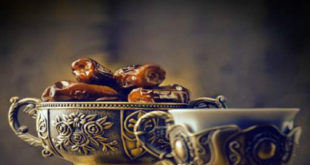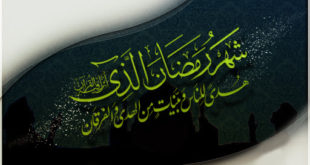
1. Perform two rakaats of Tahiyyatul Musjid upon entering, as long as it is not the makrooh time for performing salaah.[1]
عن أبي قتادة رضي الله عنه أن رسول الله صلى الله عليه وسلم قال إذا دخل أحدكم المسجد فليركع ركعتين قبل أن يجلس (صحيح البخاري، الرقم: 444)
Hazrat Abu Qataadah (radhiyallahu ‘anhu) reports that Hazrat Rasulullah (sallallahu ‘alaihi wasallam) said, “When any one of you enters the musjid, he should perform two rakaats of salaah before he sits.”
2. Do not carry out any business transaction in the musjid.[2]
عن عمرو بن شعيب عن أبيه عن جده رضي الله عنهما قال نهى رسول الله صلى الله عليه وسلم عن تناشد الأشعار في المسجد وعن البيع والاشتراء فيه وأن يتحلق الناس يوم الجمعة قبل الصلاة في المسجد (سنن الترمذي، الرقم: 322)[3]
Hazrat Abdullah bin Amr (radhiyallahu ‘anhuma) reports, “Rasulullah (sallallahu ‘alaihi wasallam) prohibited the reciting of poetry in the musjid, buying and selling in the musjid, and people sitting in circles in the musjid on the Day of Jumuah before the Jumuah Salaah (as sitting in this manner will not allow them to focus towards the one delivering the khutbah).”
3. Do not make any announcement for lost items in the musjid.[4]
عن أبي هريرة رضي الله عنه قال قال رسول الله صلى الله عليه وسلم من سمع رجلا ينشد ضالة في المسجد فليقل لا ردها الله عليك فإن المساجد لم تبن لهذا (صحيح مسلم، الرقم: 568)
Hazrat Abu Hurairah (radhiyallahu ‘anhu) reports that Hazrat Rasulullah (sallallahu ‘alaihi wasallam) said, “Whoever hears a person making an announcement for a lost item in the musjid, then he should say to him, ‘May Allah Ta‘ala not return your lost item to you.’ for indeed the masaajid were not built for this purpose.”
4. Do not raise your voice or make a noise in the musjid and in the area surrounding the musjid.[5]
عن السائب بن يزيد رضي الله عنه قال كنت نائما في المسجد فحصبني رجل فنظرت فإذا عمر بن الخطاب رضي الله عنه فقال اذهب فأتني بهذين فجئته بهما فقال ممن أنتما أو من أين أنتما قالا من أهل الطائف قال لو كنتما من أهل المدينة لأوجعتكما ترفعان أصواتكما في مسجد رسول الله صلى الله عليه وسلم (صحيح البخاري، الرقم: 470)[6]
Hazrat Saaib bin Yazeed (radhiyallahu ‘anhu) reports, “On one occasion, I was asleep in the musjid when someone threw some pebbles on me (in order to awaken me). I looked and saw that it was Umar (radhiyallahu ‘anhu). He said to me, ‘Go and bring these two people to me.’ I brought them before him, and he asked them, ‘Where are you two people from?’ They replied that they were from Taaif. Hazrat Umar (radhiyallahu ‘anhu) said, ‘Had you been from the people of Madinah Munawwarah, I would have punished you severely! You are raising your voices in the musjid of Rasulullah (sallallahu ‘alaihi wasallam)!’”
عن أبي هريرة رضي الله عنه قال قال رسول الله صلى الله عليه وسلم إذا اتخذ الفيء دولا والأمانة مغنما والزكاة مغرما وتعلم لغير الدين وأطاع الرجل امرأته وعق أمه وأدنى صديقه وأقصى أباه وظهرت الأصوات في المساجد وساد القبيلة فاسقهم وكان زعيم القوم أرذلهم وأكرم الرجل مخافة شره وظهرت القينات والمعازف وشربت الخمور ولعن آخر هذه الأمة أولها فارتقبوا عند ذلك ريحا حمراء وزلزلة وخسفا ومسخا وقذفا وآيات تتابع كنظام قطع سلكه فتتابع (سنن الترمذي، الرقم: 2211)[7]
Hazrat Abu Hurairah (radhiyallahu ‘anhu) reports that Hazrat Rasulullah (sallallahu ‘alaihi wasallam) said, “When spoils of war will be taken as people’s personal wealth to be circulated among them, when a trust will be regarded as booty (i.e. as public property), when zakaat will be viewed as a tax, when the knowledge of Deen will be acquired for motives besides that of Deen, when a man will obey his wife and disobey his mother, and keep his friend close to him and distance his father from him, and voices will be raised in the masaajid, and the open sinner of a tribe will become their leader, and the lowest person of a people will become their representative, and a man will be honoured out of fear of his evil, and singing girls and musical instruments will become rife, and wine will be consumed (openly), and the latter people of this Ummah will curse the former people of this Ummah, (when these signs manifest) then the people should await hurricanes, earthquakes, people sinking into the earth, disfiguring of faces, stones raining from the sky and other similar signs that will follow in quick succession, just as the pearls in a string fall in quick succession when the string is cut.”
[1] ذكر الفقيه رحمه الله تعالى في التنبيه حرمة المسجد خمسة عشر … والثاني أن يصلي ركعتين قبل أن يجلس (الفتاوى الهندية 5/321)
[2] ذكر الفقيه رحمه الله تعالى في التنبيه حرمة المسجد خمسة عشر … والثالث أن لا يشتري ولا يبيع (الفتاوى الهندية 5/321)
[3] قال أبو عيسى: حديث عبد الله بن عمرو بن العاص حديث حسن
[4] ويكره … وإنشاد ضالة
قال العلامة ابن عابدين رحمه الله (قوله وإنشاد ضالة) هي الشيء الضائع وإنشادها السؤال عنها وفي الحديث إذا رأيتم من ينشد ضالة في المسجد فقولوا لا ردها الله عليك (رد المحتار 1/660)
[5] ذكر الفقيه رحمه الله تعالى في التنبيه حرمة المسجد خمسة عشر … والسادس أن لا يرفع فيه الصوت من غير ذكر الله تعالى (الفتاوى الهندية 5/321)
[6] قال الحافظ في الفتح (1/656): قوله كنت قائما في المسجد كذا في الأصول بالقاف وفي رواية نائما بالنون ويؤيده رواية حاتم عن الجعيد بلفظ كنت مضطجعا
[7] قال أبو عيسى: وفي الباب عن علي وهذا حديث غريب
وعن علي رضي الله عنه عن النبي صلى الله عليه وسلم قال إذا فعلت أمتي خمس عشرة خصلة فقد حل بها البلاء قيل وما هي يا رسول الله قال إذا كان المغنم دولا وإذا كانت الأمانة مغنما والزكاة مغرما وأطاع الرجل زوجته وعق أمه وبر صديقه وجفا أباه وارتفعت الأصوات في المساجد وكان زعيم القوم أرذلهم وأكرم الرجل مخافة شره وشربت الخمر ولبس الحرير واتخذت القينات والمعازف ولعن آخر هذه الأمة أولها فليرتقبوا عند ذلك ريحا حمراء أو خسفا أو مسخا رواه الترمذي وقال لا نعلم أحدا روى هذا الحديث عن يحيى بن سعيد الأنصاري غير الفرج بن فضالة (سنن الترمذي، الرقم: 2210)
 Ihyaaud Deen An Effort to Revive Deen in Totality
Ihyaaud Deen An Effort to Revive Deen in Totality



